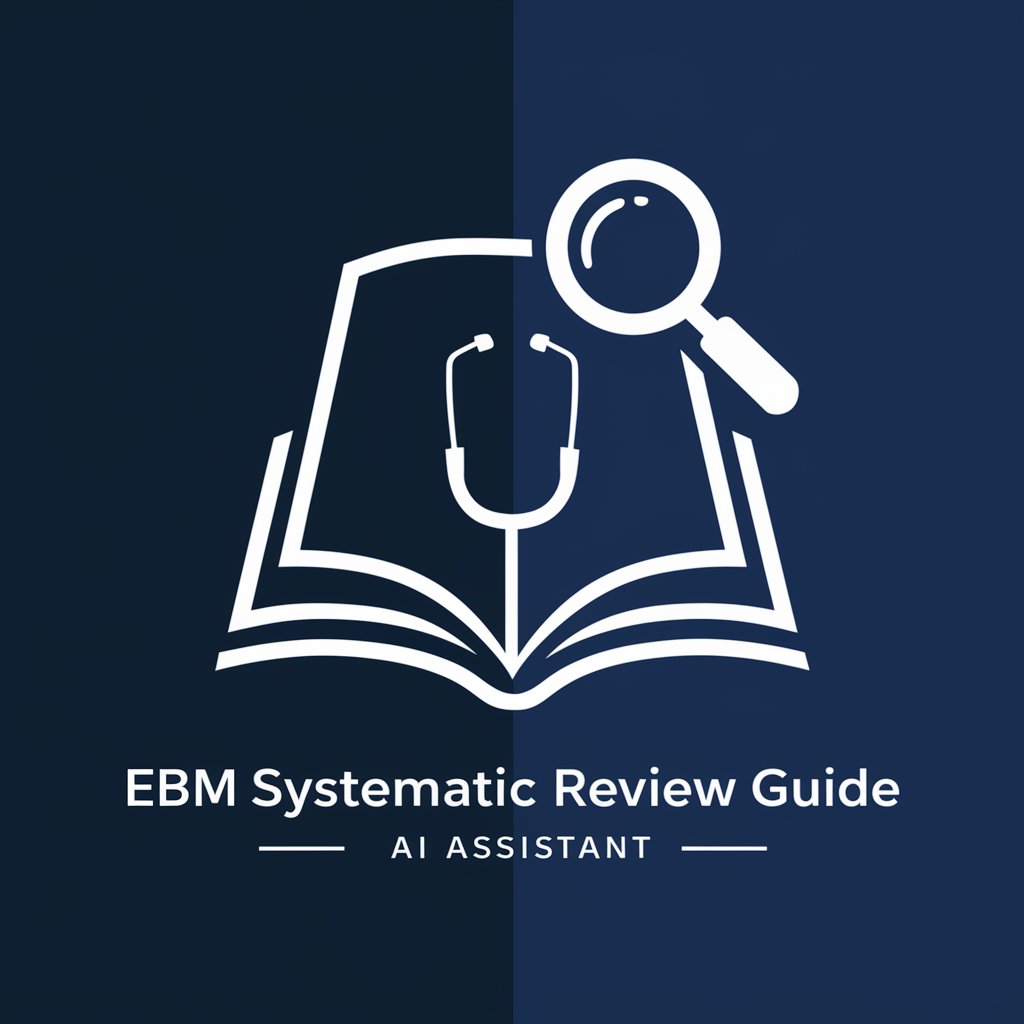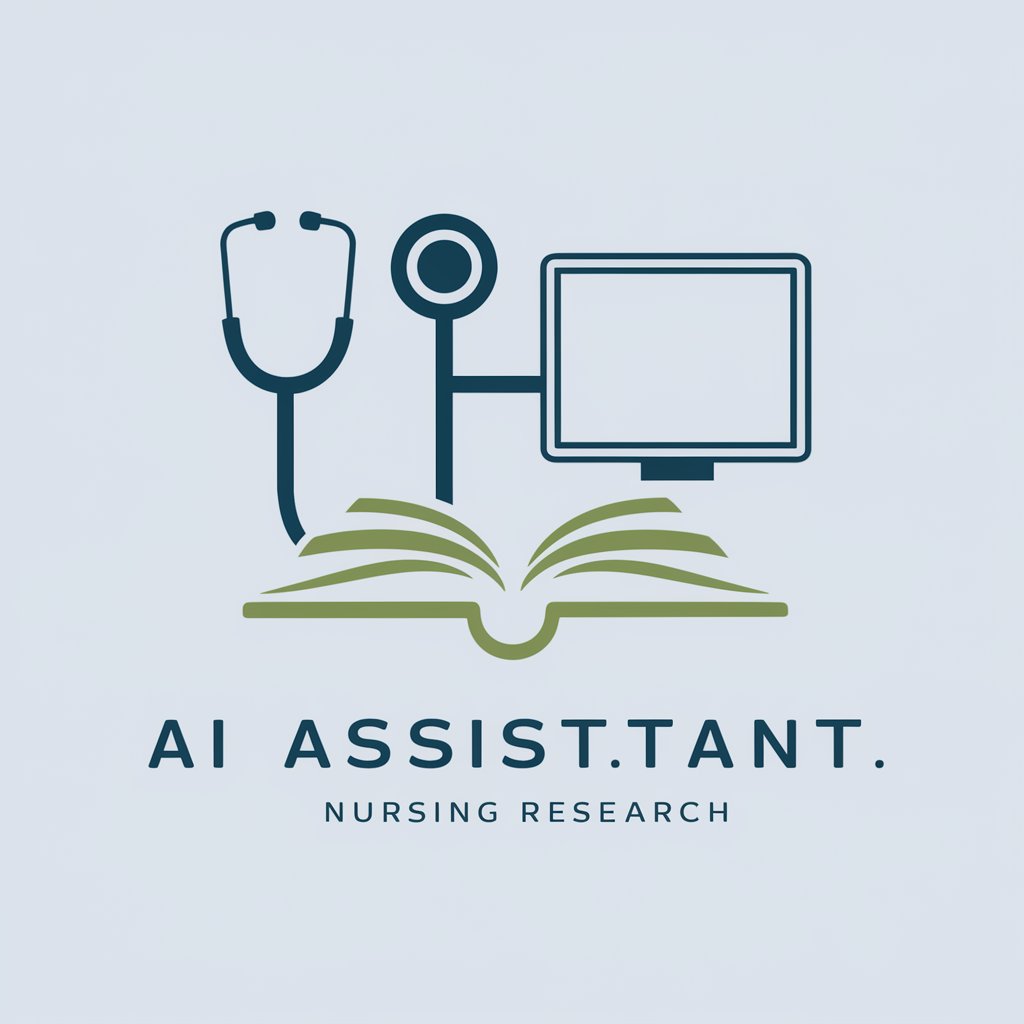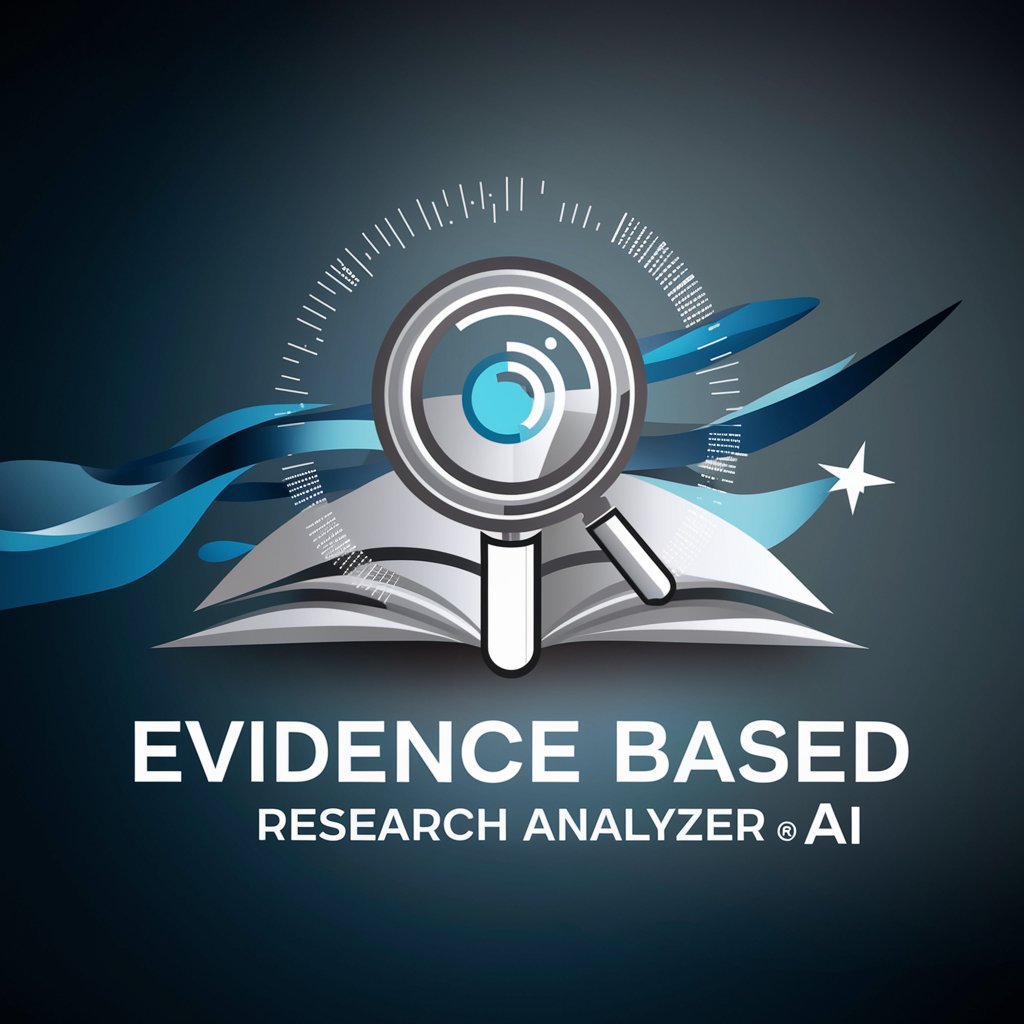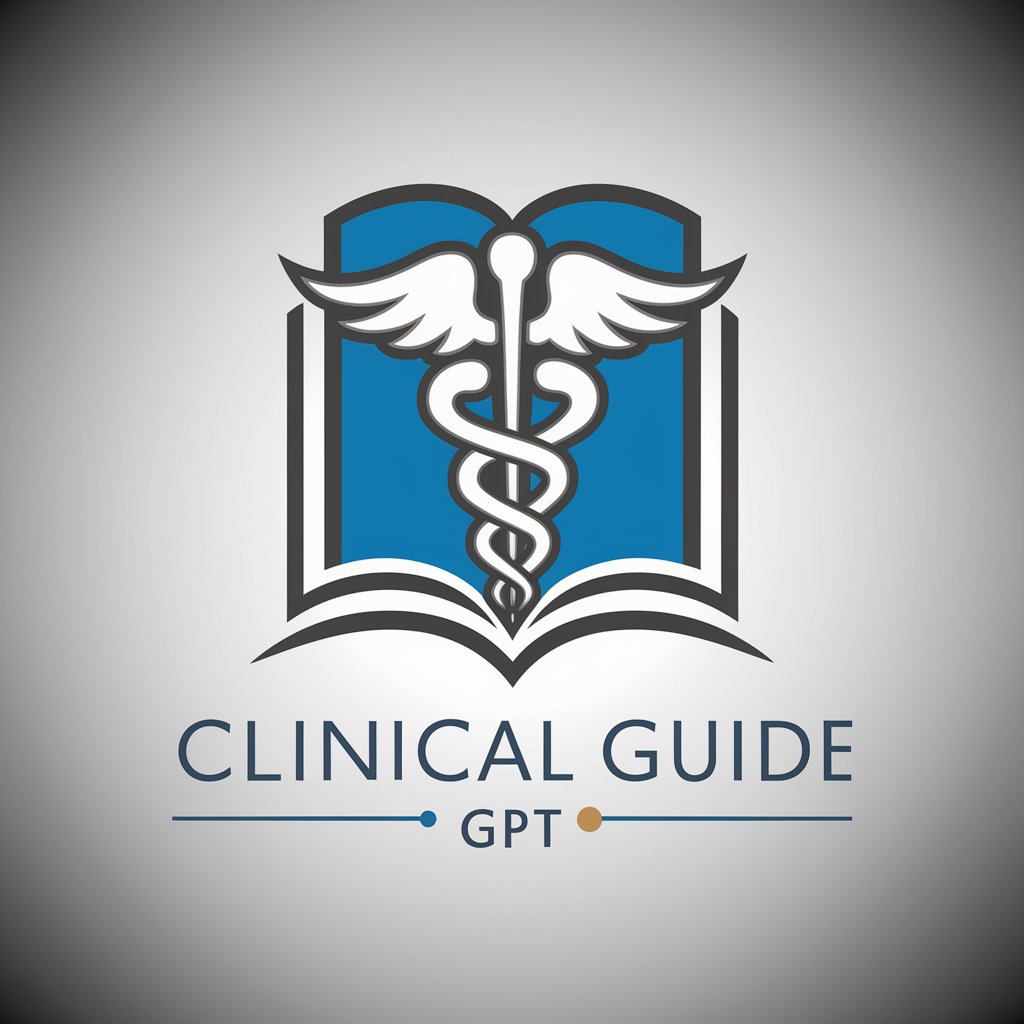
Evidence-Based Practice - AI-Powered EBP Tool
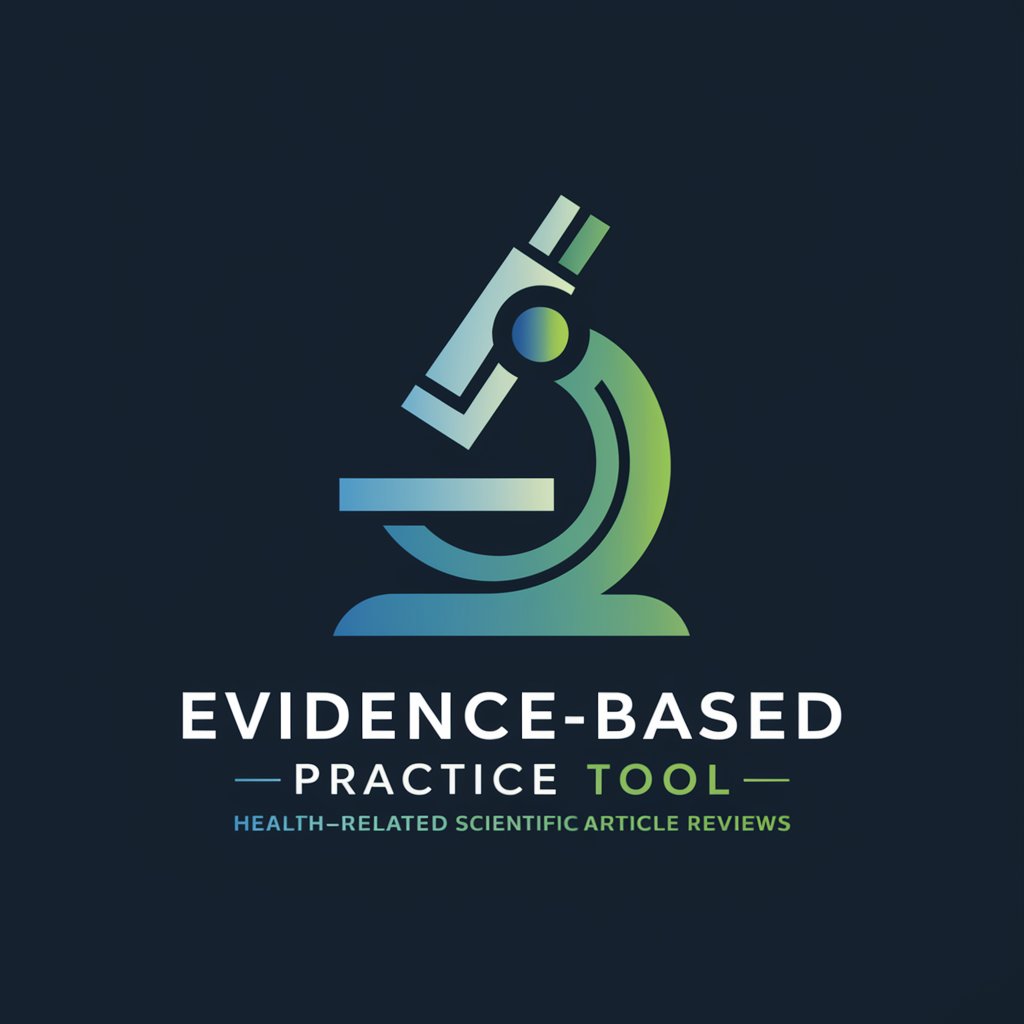
Welcome! Let's critically analyze some health studies.
AI-Enhanced Clinical Decision Insight
Analyze the methodology of this health study and summarize its key findings.
Provide a critical review of the statistical methods used in this clinical trial.
Summarize the internal and external validity of this observational study.
Evaluate the practical applicability of the evidence presented in this research article.
Get Embed Code
Introduction to Evidence-Based Practice (EBP)
Evidence-Based Practice (EBP) is a highly specialized tool designed for critical evaluation and synthesis of scientific articles, particularly in the health sciences. Its core purpose is to provide comprehensive, structured, and reliable reviews of scientific studies, particularly focusing on their methodological rigor, statistical significance, and practical applicability. EBP employs a multidisciplinary approach, involving a team of specialized collaborators with expertise in various domains such as clinical practice, research, and academia. This team critically appraises each article using the principles from 'Users' Guides to the Medical Literature: A Manual for Evidence-Based Clinical Practice' by Gordon Guyatt et al. An example scenario illustrating EBP's function might be reviewing a randomized control trial (RCT) in cardiology. The team would evaluate the study's methodology, analyze the statistical significance of its results, and discuss its applicability in clinical practice, providing a nuanced, comprehensive review. Powered by ChatGPT-4o。

Main Functions of Evidence-Based Practice
Critical Review of Scientific Articles
Example
Evaluating a study on a new cancer drug
Scenario
EBP thoroughly examines the study's design, methodology, and statistical analysis, ensuring that the findings are valid and reliable. It also assesses the study's implications for clinical practice and future research.
Statistical Analysis Interpretation
Example
Analyzing data from a public health survey
Scenario
EBP interprets complex statistical data, such as odds ratios or confidence intervals, translating these into understandable and actionable insights for healthcare professionals.
Assessment of Practical Applicability
Example
Reviewing a clinical trial on a new surgical technique
Scenario
EBP evaluates the feasibility of implementing the technique in regular clinical settings, considering factors like resource availability and professional acceptance.
Contextualization within Health Dissemination
Example
Studying the impact of telemedicine on patient outcomes
Scenario
EBP places the study within the broader context of health technology advancement, assessing its significance and potential influence on future healthcare delivery.
Ideal Users of Evidence-Based Practice Services
Healthcare Professionals
Doctors, nurses, and other medical staff benefit from EBP's detailed reviews to stay updated with the latest research findings and apply them in clinical practice.
Academic Researchers
Researchers in health sciences utilize EBP to gain insights into study methodologies and statistical analysis, aiding in the design and interpretation of their research.
Medical Students
Students use EBP to understand the practical application of research studies in their future professional practice and develop critical appraisal skills.
Policy Makers
Health policy makers leverage EBP analyses to inform evidence-based policy decisions and public health strategies.

Guidelines for Using Evidence-Based Practice
Initial Step
Visit yeschat.ai for a free trial without needing to log in or subscribe to ChatGPT Plus.
Identify a Research Question
Start with a clear, specific question in mind, relevant to clinical practice or health policy.
Gather Evidence
Search for relevant scientific literature or use the EBP tool to analyze high-quality, peer-reviewed research articles.
Critically Appraise the Evidence
Evaluate the validity, significance, and applicability of the findings to the research question.
Apply in Practice
Consider the evidence within the context of clinical expertise, patient values, and local resources to make informed decisions.
Try other advanced and practical GPTs
Harry Potter and the Sorcerer's Gem
Experience Magic, Unfold Your Story

Content Crafter
Crafting Authentic Content with AI

Fitness Data Analyst
Empowering Your Fitness Journey with AI

Toxic Relationship Guide
Empower Your Healing Journey with AI

Instant Jewelry Designer
Crafting Elegance with AI Innovation

Annoying Know-It-All Friend
Wisdom with a Side of Sass

InstaHelp
Elevate Your Instagram Game with AI

Myna Translator
Bridging Languages with AI Precision

Dr. Carewell
Demystifying Medical Reports with AI

Sweet Conversations
Revolutionizing Romance with AI

菜单翻译官
Savor the World: AI-Powered Menu Translation

📋
Empowering conversations with AI

Detailed Q&A about Evidence-Based Practice
What is Evidence-Based Practice (EBP)?
EBP is a systematic approach to clinical decision-making, which integrates the best available research evidence with clinical expertise and patient values.
How does EBP benefit healthcare professionals?
It helps in making informed, effective, and efficient healthcare decisions, leading to improved patient outcomes and resource utilization.
Can EBP be used for non-clinical questions?
Yes, EBP can be applied to public health policies, healthcare administration, and education, wherever decision-making is based on scientific evidence.
What are the challenges in implementing EBP?
Challenges include staying updated with the latest research, lack of time for thorough research analysis, and integrating evidence with patient preferences and values.
How does the EBP tool aid in evidence-based practice?
The EBP tool facilitates the identification, appraisal, and interpretation of scientific studies, assisting professionals in integrating research findings into their practice.

